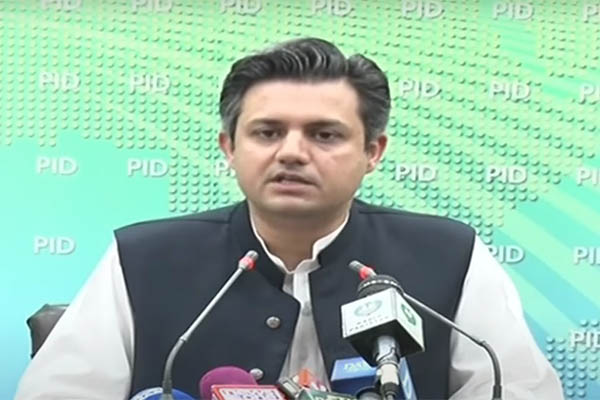
File photo
Alongside energy minister, Finance Minister Shaukat Tarin says SBP governor can be fired if they fail to achieve growth objectives
Energy Minister Hammad Azhar on Tuesday announced that the government had decided to table in Parliament an average gas tariff bill that can lead to prices being hiked by up to 30 percent, adding that this will be done “gradually” over “many years.”
Addressing media alongside Finance Minister Shaukat Tarin, he clarified that the legislation would not make any alterations to existing slabs but overall pricing had to be increased to prevent disaster in future. He said the country possessed sufficient gas reservoirs for the next 10 years, but available gas fields were depleting by about 9 percent annually. In the absence of any major discoveries in the coming years, the gas reserves would be fully depleted due to low rate of replenishment, he warned.
Azhar said currently 70 percent of the available gas in the network was locally produced, while 30 percent was imported LNG. He said this ratio would initially shift to 50 percent and eventually hit 30 percent locally produced and 70 percent imported LNG. Under the existing rates of imported LNG, he said, this could increase gas prices by up to 30 percent; this could be reduced to 10-15 percent if LNG prices fall in the international market, he added. “After two to three years, the situation will become more difficult,” he said, adding that it was necessary to devise a strategy now to ensure the situation could be tackled in a timely manner.
In his briefing, the finance minister rebutted the opposition’s claims of the State Bank of Pakistan (SBP) autonomy bill delinking the central bank from parliamentary oversight. “We will bring SBP law before Parliament to amend it if the governor does not provide the required support to the government,” he said. “Parliament is supreme and it can bring any change in the law. We don’t think that the need will arise to fire the governor from his office,” he added.
He said the federal government would still appoint eight members of SBP’s Executive Board, which would be responsible for devising the affairs of the central bank. Claiming that the government wanted to make the SBP an autonomous body having full independence to devise monetary and exchange rate policies, he admitted that while this legislation was brought about under pressure from the International Monetary Fund, it had also been part of the PTI’s manifesto.
Referring to the supplementary finance bill, often described as a “mini-budget,” Tarin reiterated that it would not add new burdens on citizens, as most of the sectors facing the withdrawal of tax exemptions would be able to avail refunds and input adjustments. He said that the IMF had initially demanded the withdrawal of tax exemptions equal to Rs. 700 billion, but the government had negotiated this down to Rs. 343 billion, of which Rs. 280 billion were in the form of input adjustments. The mini-budget’s real intent was to ensure documentation of the economy by removing distortions in the tax system, he added.
